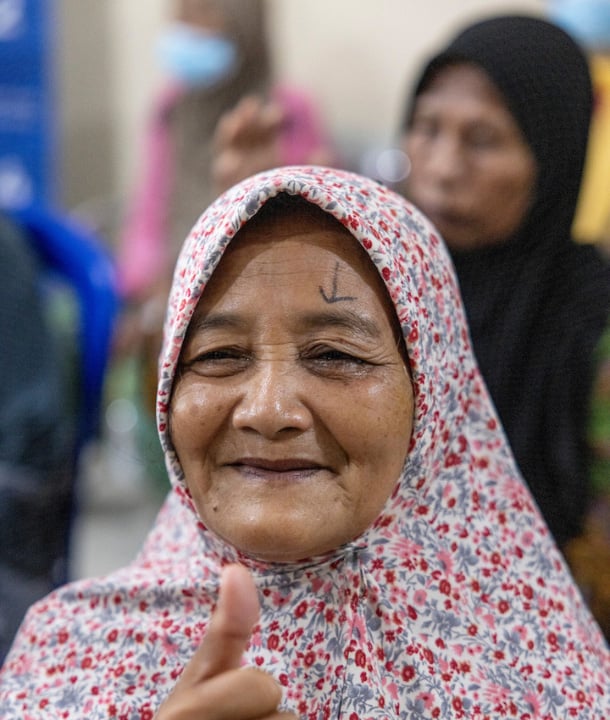Indonesia has the second highest rate of blindness in the world
While it may seem like eye diseases don’t discriminate, avoidable blindness certainly does. The harsh tropical climate and poverty have meant that the people of Indonesia, on average, suffer cataracts 15 years earlier than people in Australia. But 9 out of 10 people who are blind in Indonesia don’t have to be, and with your kind support, we can change this.
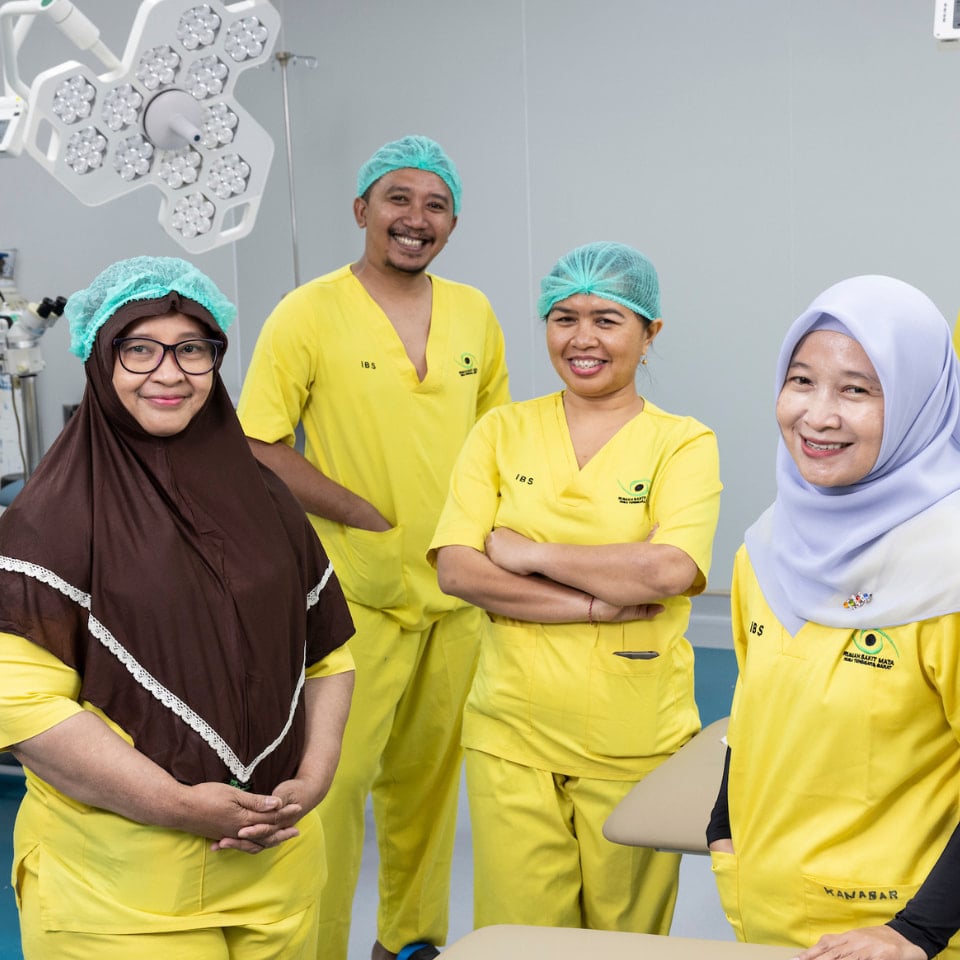
There aren't enough ophthalmologists
Indonesia has a significant shortage of ophthalmologists, with only 2,000 ophthalmologists, for a population of over 250 million people. Training and equipping local eye health workforces is crucial to addressing this.
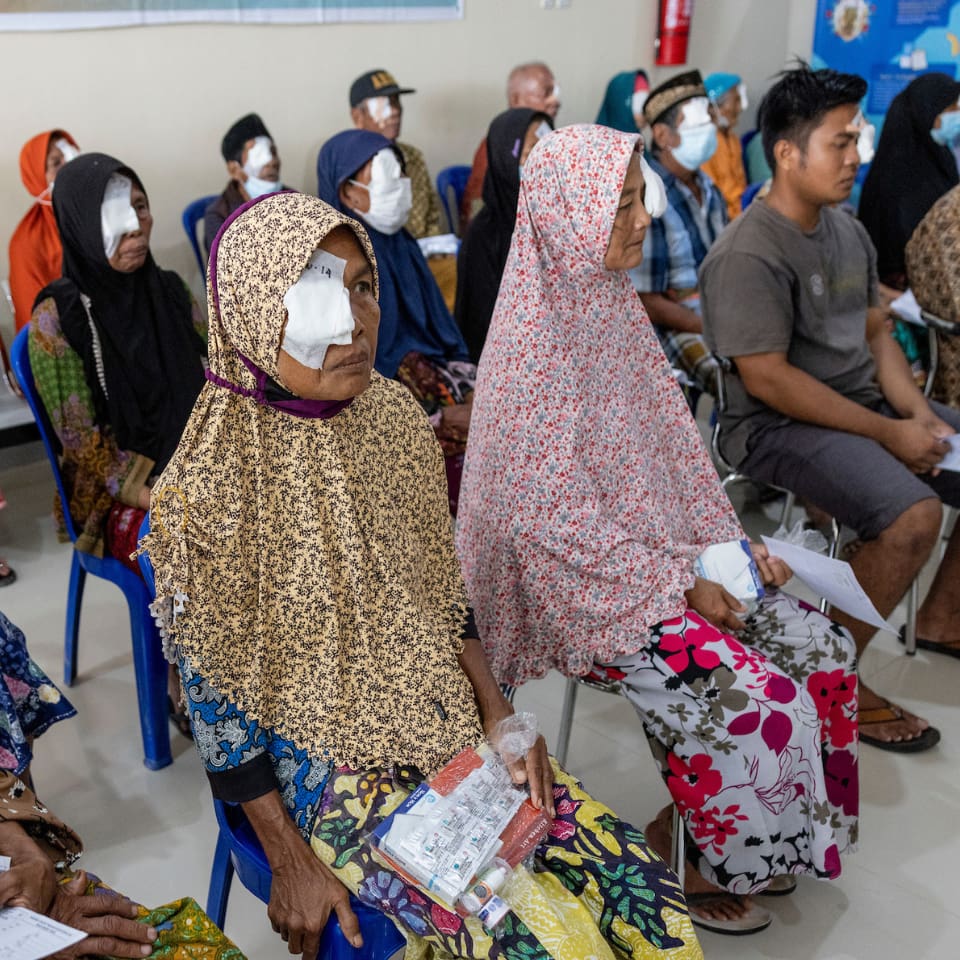
Poverty is a significant barrier to good eye health
Indonesia has a significant shortage of ophthalmologists, with only 2,000 ophthalmologists, for a population of over 250 million people. Training and equipping local eye health workforces is crucial to addressing this.
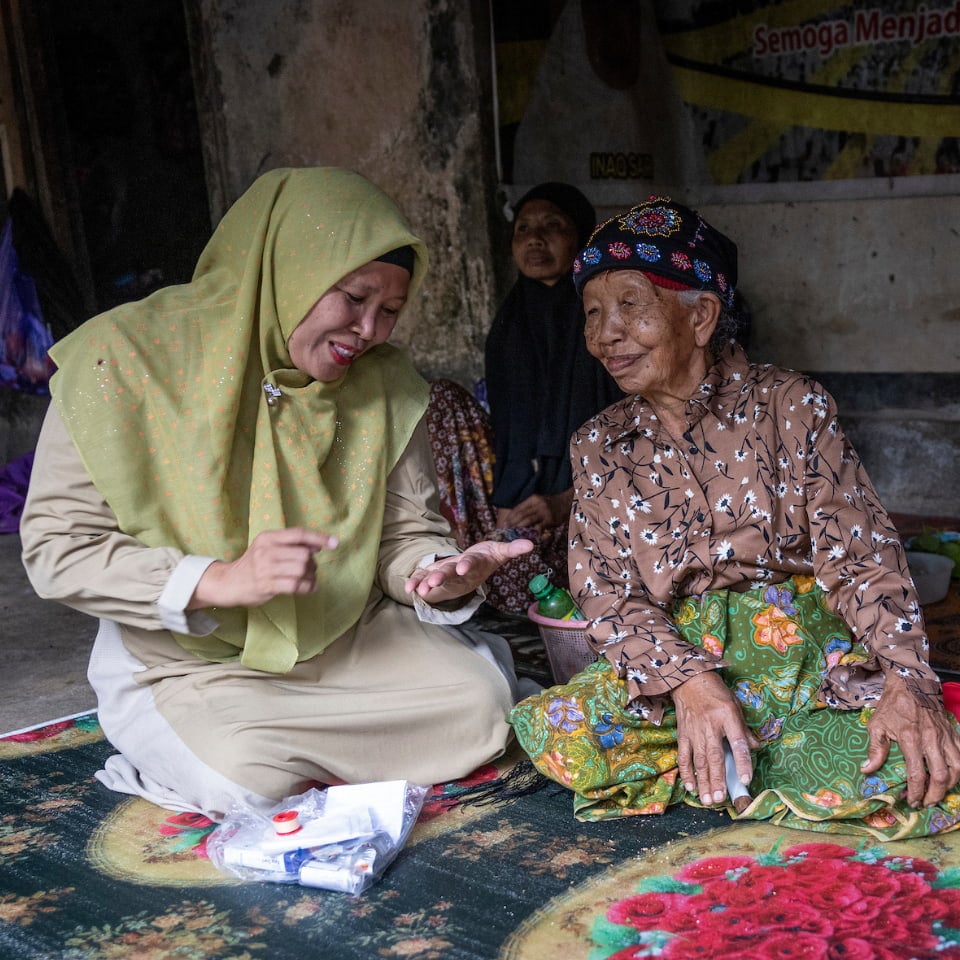
There is a large cataract backlog
Cataract is the leading cause of avoidable blindness in Indonesia. Every year, around 80,000 cataract surgeries are performed, but there is still a shortage of about 130,000 people who need surgery but haven't received it yet. The current backlog of operable cataract in Indonesia is approximately 5 million people. The Foundation is working to tackle the cataract backlog by increasing the number of cataract surgeries we perform each year.
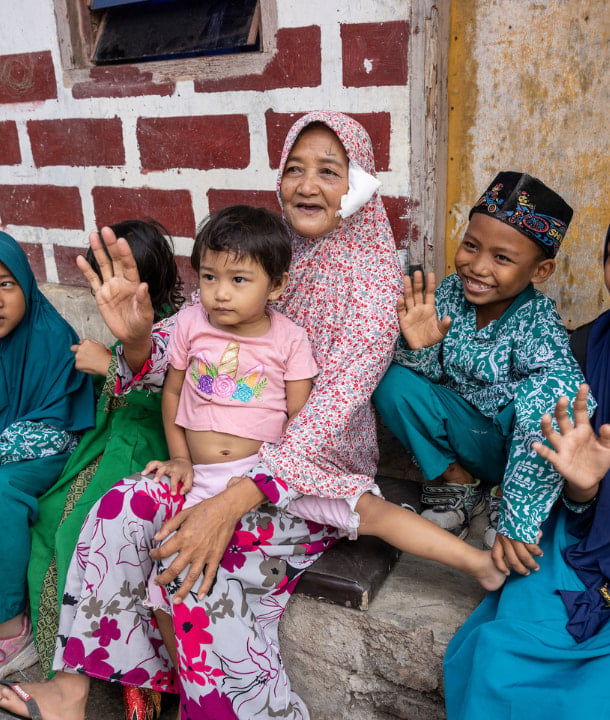
Suharni was overjoyed to see her family
As her patches were lifted from her eyes, Suharni couldn’t contain her happiness.
When Suharni went home, there were joyful celebrations. Three generations of her family gathered around her, and she looked again and again at the faces of her grandchildren, some of which she had never seen before.
She had special words for her husband Budiman as she embraced him.
“He is the most beautiful man. I have not seen him for three years.”
Without the support of kind people like yourself, Suharni could have beencome permanently blind. She wouldn’t have been able to see the faces of her loved ones.
Suharni is so grateful that the supporters of The Foundation helped give her precious sight back.
“I feel so relieved and so happy. Soon I will run.”
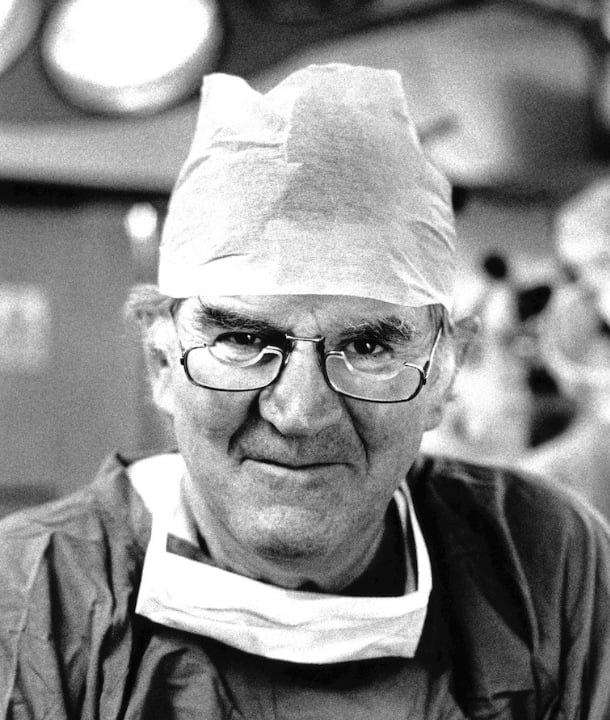
Fred's legacy lives on in Indonesia
Fred Hollows knew that training and building the number of surgeons was the key to fighting avoidable blindness.
Fred passed on his skills to Professor Sanduk Ruit, who taught the Indonesian ophthalmologist Dr Sriana Wulansari. It was Dr Wulansari who performed Suharni’s surgery.
“Teach the teachers first. Then the teachers can teach others”, Fred famously said.
Even though Fred is no longer with us, you are, and we are so thankful for your support. Because of your belief in Fred’s vision, we are still going strong three decades on.
With your support, The Foundation is helping train ophthalmologists. By investing in the training of ophthalmologists, The Foundation is helping ensure the continuity of good eye care health beyond our direct interventions.
Fred did not take a ‘fly in, fly out’ approach to restoring sight. He knew that it was vital to train and equip local people to drive lasting, sustainable change in eye health care. He wanted to give people a chance to help themselves.
Like Fred, we believe in the multiplier effect of training — train one surgeon, and they’ll go on to train many more.
